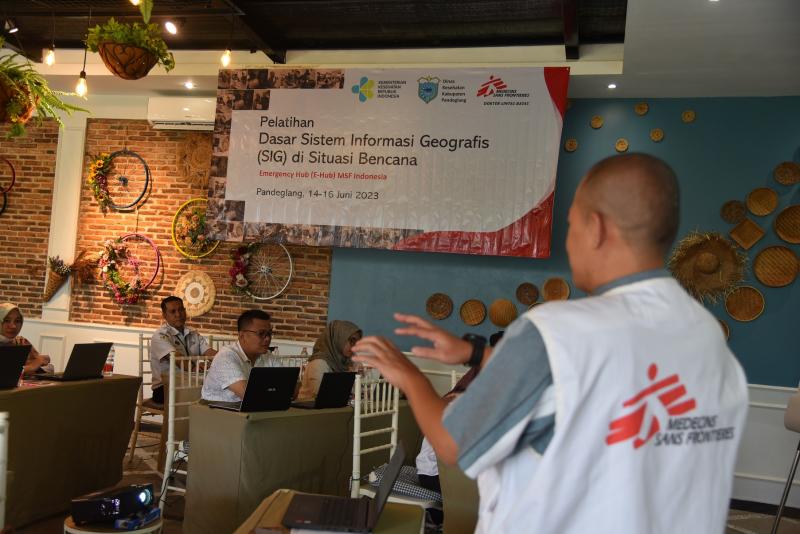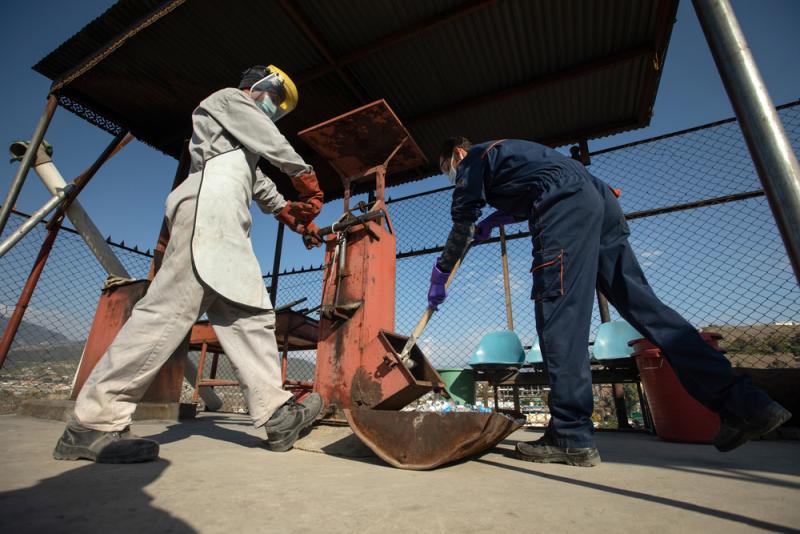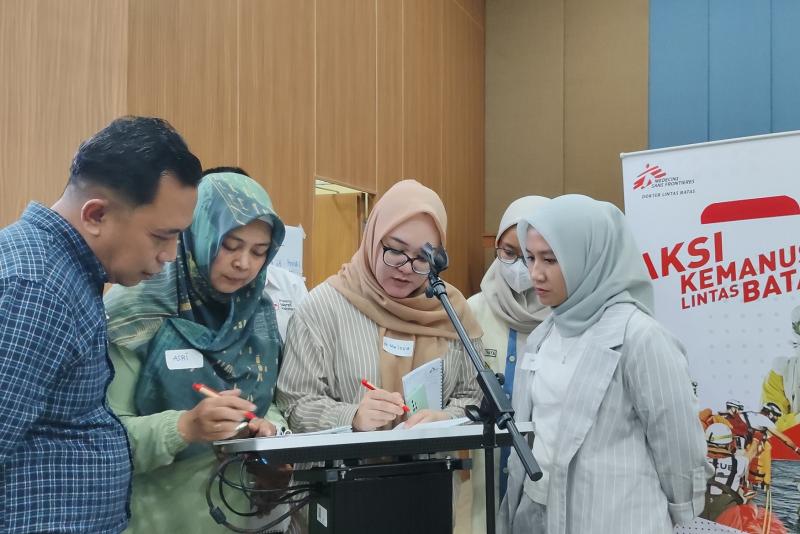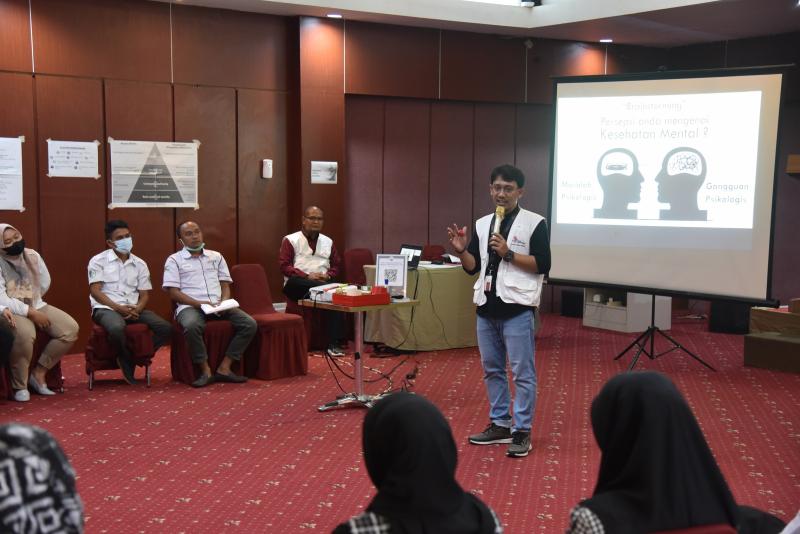About the E-Hub
The E-Hub (Capacity Building Hub for Emergency Preparedness and Response) aims to develop learning opportunities for health crisis and disaster responders
The E-Hub project, known as the Capacity Building Hub for Emergency Preparedness and Response, is dedicated to creating educational opportunities for health crisis and disaster responders. The primary goal is to enhance community resilience, preparedness, and the responders' ability to handle emergencies professionally within Indonesia.
Currently, we are actively involved in four specific domains, which were jointly identified with the Ministry of Health (MoH). These domains address gaps where Doctors Without Borders / Médecins Sans Frontières (MSF) can share its institutional expertise during emergencies:
-
Medical Emergency (including the EMT (emergency medical technicians Emergency Medical Teams) setup, mass casualty incident management, methanol poisoning response outbreak management)
-
Mental Health and Psychosocial Support (MHPSS) in emergency contexts and non-specialized counselling for impacted population
-
Data Management and Geographic Information Systems (GIS), basic and intermediate skills.
-
Environmental Health (focusing on Water Hygiene and Sanitation, and Waste Management for healthcare facilities)
-
Supply and Logistics for effective health crisis preparedness and response.
Our target audience for these training programs includes emergency responders from Province and District Health Offices, Primary Health Centers (Puskesmas), Public Hospitals, universities, local NGOs, and other relevant agencies who works in emergency preparedness and responses across the Jakarta, Banten, and Aceh provinces; the MoH staff, including MSF (both staff and peers) and other humanitarian actors.
For the coming year, we are going to expand the geographical coverage for E-Hub to the other two provinces agreed with MoH, i.e. West Sulawesi and Maluku.
- Medical Emergency
This domain contains training needed to save lives in disaster or emergency situations. In the face of unpredictability, this initiative stands as a beacon of readiness. With expert-led guidance, hands-on simulations, and real-world scenarios, we empower individuals, both health practitioners and the general public, with life-saving skills. Our comprehensive programs are based on the current needs and gaps, to ensure people are equipped to act swiftly and confidently.
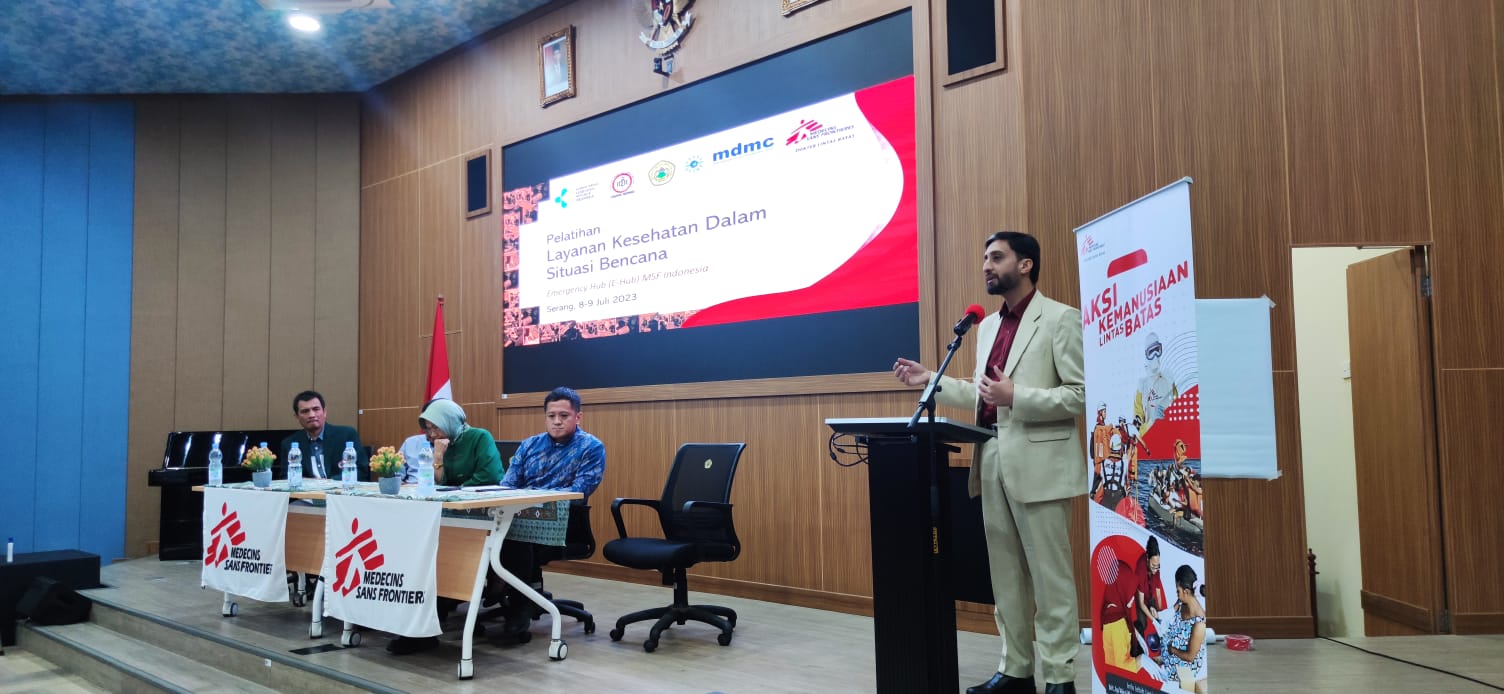
- Mental Health
Disaster and crisis situations take a toll not only on physical aspects, but also on social, economy, as well as emotional well-being of the people affected by it. The stressors of being displaced can put people affected in disaster at risk of emotional and physical health problems. Therefore, in the wake of emergencies, prioritizing mental health and psychosocial support (MHPSS) is become vital by integrating it into emergency response plans.
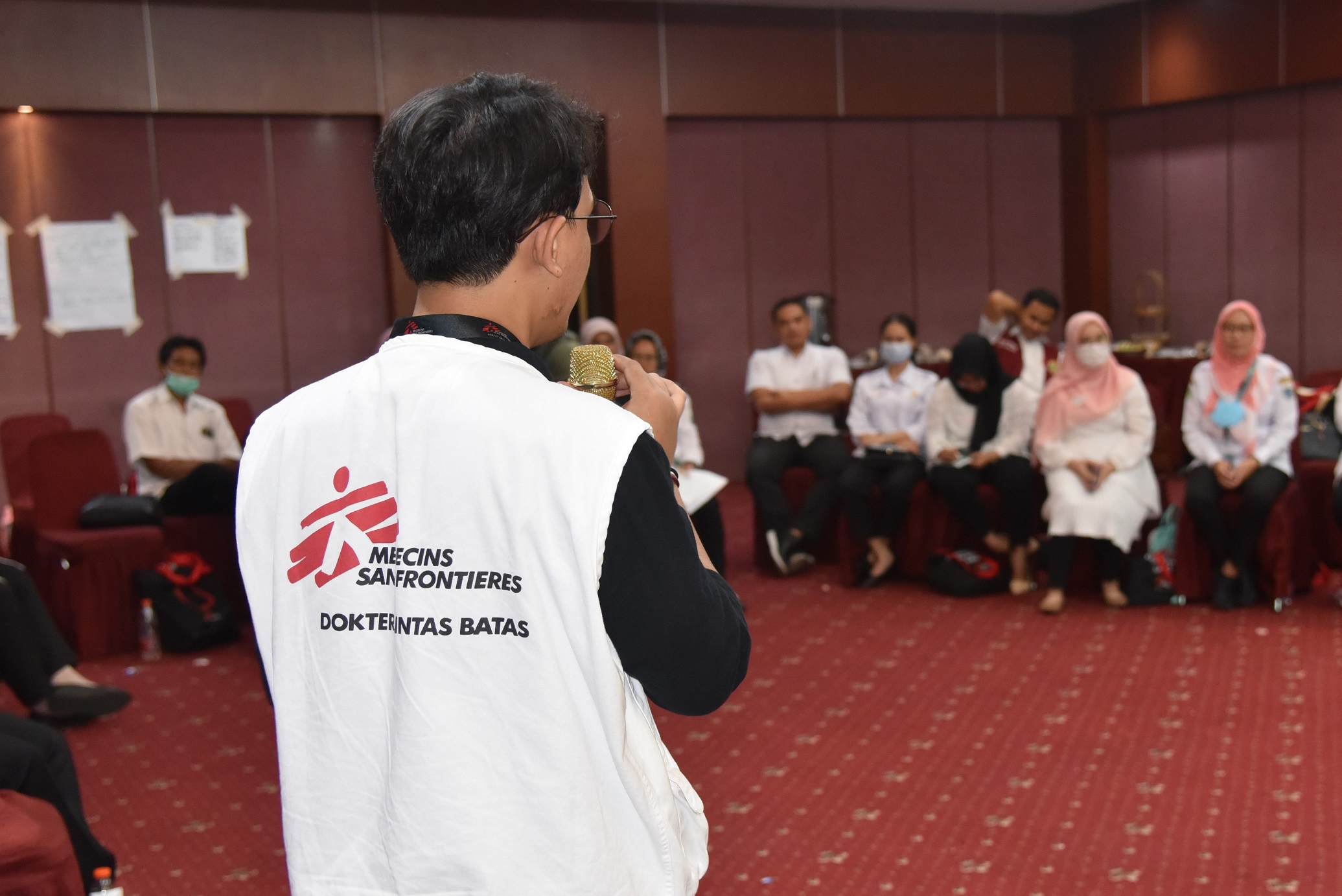
- Data Management
GIS and data Management are vital in emergencies, like disasters or outbreaks. They swiftly process location data, aiding responders in making quick, informed decisions. By prioritizing GIS and Data Management in Emergency training, we aim to equip responders with skill and knowledge that directly contribute to saving lives during critical situations.
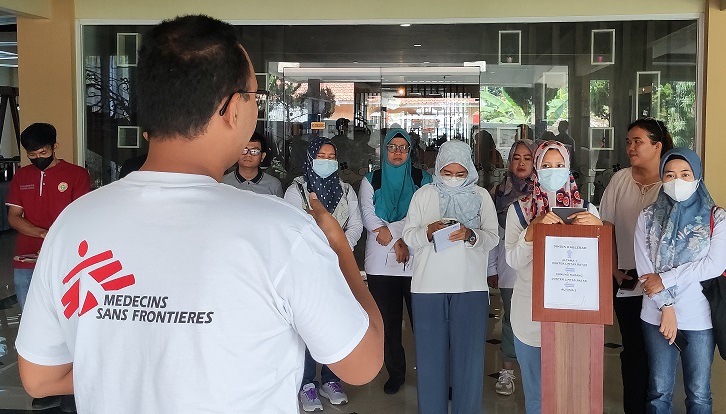
- Environmental Health
The overall goal of the environmental health domain is to conduct training to improve the quality of knowledge of environmental health service facility staff in order to create a quality healthy environment and prevent disease or health problems from environmental risk factors, especially during emergency response and to support the achievement of district/city minimum service standards.
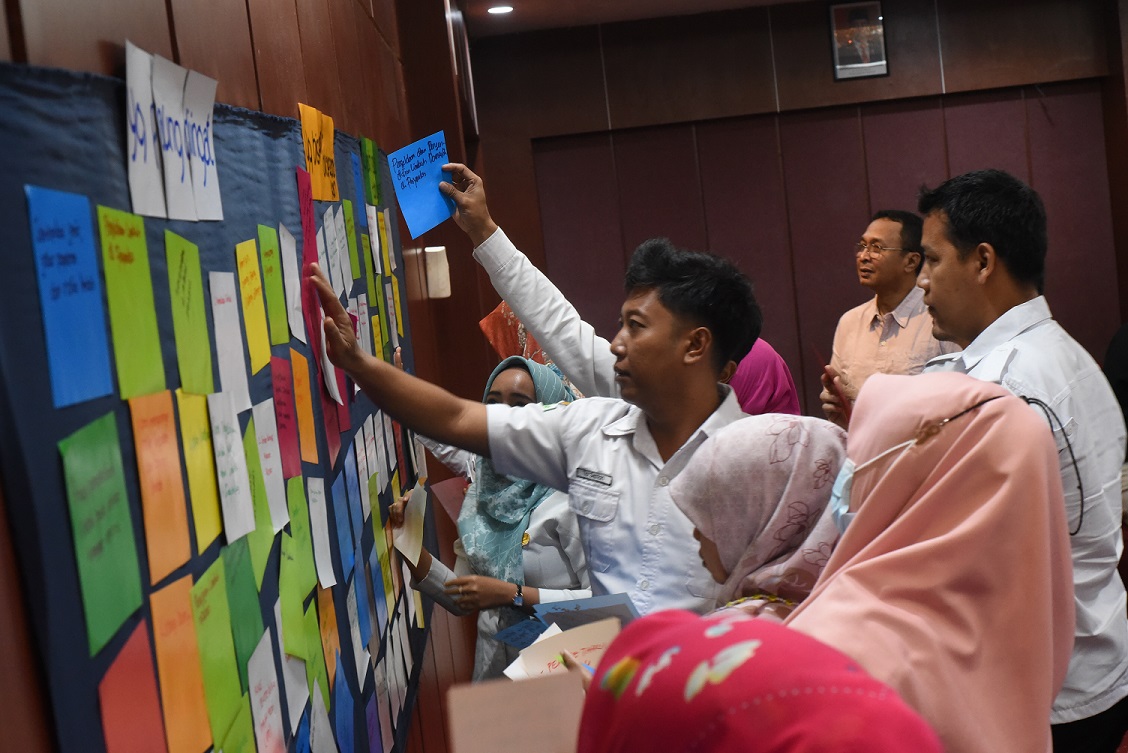
- Supply and Logistics
Effective supply and logistics management is essential for health crisis preparedness and response. It encompasses strategic resource management, timely procurement, and distribution of medical and non-medical supplies, as well as maintaining efficient communication for delivery. Capacity building in this domain involves preparedness, response planning, transportation, warehousing, simulation exercises, and robust logistics frameworks to manage increased demand during health crises.
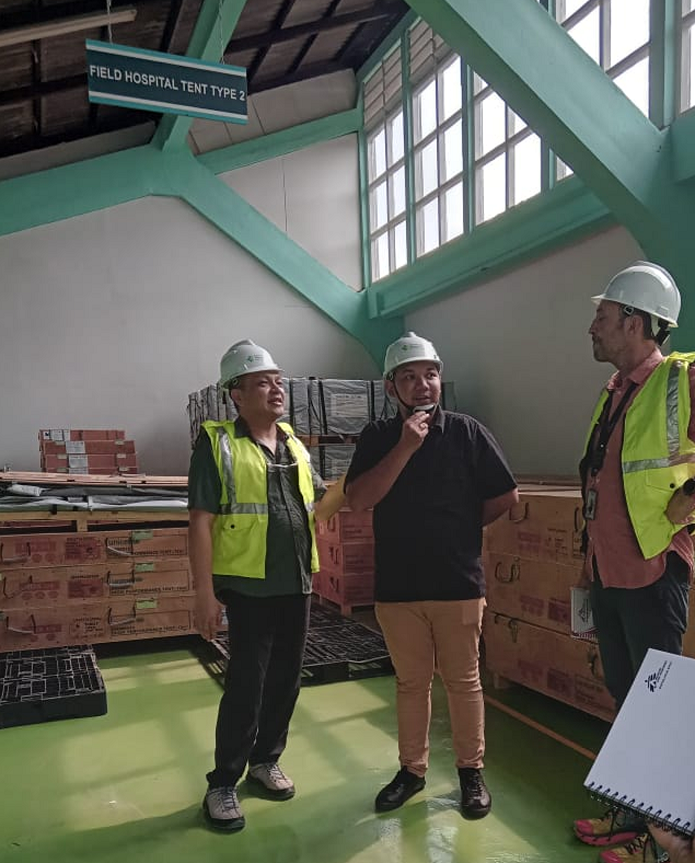
The E-Hub Domains
Médecins Sans Frontières (MSF) and the Ministry of Health's Health Crisis Center (MoH PKK) are engaged in the E-Hub initiative. This project establishes a Capacity Building Hub dedicated to enhancing the skills of health crisis and disaster responders, enabling them to effectively address emergencies with professionalism. In 2023, we introduced training programs in four distinct domains through our 2023 initiative.
Current Work area
Aceh Province, located on the northern tip of Sumatra, Indonesia, with its capital in Banda Aceh, is home to around 5 million people. Known for its rich history, Aceh was a powerful sultanate in Southeast Asia and one of the last regions to be colonized by the Dutch. The province is distinct for its strong adherence to Islamic law (Sharia) and a culture deeply influenced by Islamic traditions. Aceh's economy benefits from abundant natural resources, particularly oil and gas, and agriculture and fishing. However, the region remains vulnerable to natural disasters such as earthquakes and tsunamis, with ongoing efforts to improve disaster preparedness and resilience in response to these risks.
Banten Province, located in western Java, Indonesia, is a region that harmoniously blends tradition and progress. Home to thriving urban centers like Tangerang and Serang, the province boasts a significant economic contribution to Indonesia's growth. Banten's population of over 11 million people experiences a range of challenges, including a high susceptibility to natural disasters such as floods and coastal hazards due to its coastal location.
Daerah Khusus/Special Region Jakarta (DKJ)Jakarta, the biggest and bustling city of Indonesia, is a vibrant tapestry that interweaves modernity with cultural heritage. As an economic and cultural hub, this dynamic city represents the heartbeat of the nation's progress while cherishing its historical roots. The enactment of Law No. 2/2024 marked a significant change for Jakarta, as it transitioned from being the capital of Indonesia to a Special Region focused on economic and trading activities. This law came into effect on 25 April 2024, following the relocation of the capital to Nusantara, as outlined in the State Capital Act 2023.

